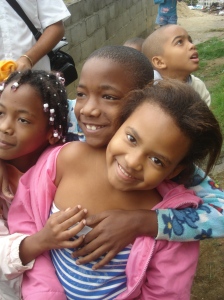Rocinha in Rio de Janiero, Dharavi in Mumbai, and Kibera in Nairobi are all informal settlements that have gained global infamy as the poster-children of urban development gone wrong. Through increased exposure in cinema and other forms of media, these haphazardly built communities have become defining features of the dichotomized megalopolises they are based in. They are considered worthwhile case studies for anthropologists and urban practitioners, and are ostracized by the cities’ public officials and wealthier classes. They have also in recent years emerged as breeding grounds and exporters of fashionable urban trends (think “City of God”, “Slumdog Millionaire”, hip hop, and “Baile Funky”) and burgeoning tourism destinations for intrigued and wide-eyed visitors – “slum tourism”, many call it.
I personally have never been a fan of slum tourism—I fear the caricaturization and the overly-simplistic views of urban poverty it may engender—but I am not one to question tour operators’ (usually consisting members of concerned informal settlements) means of generating income for their disadvantaged communities. Nonetheless, I came across a New York Times op-ed that triggered this posting and wish to share a particular statement with readers. A member of the Kibera community, Kennedy Odede piercingly sums up the pitfalls of fleeting slum tours with the following:
“…it’s just as likely that a tour will come to nothing. After all, looking at conditions like those in Kibera is overwhelming, and I imagine many visitors think that merely bearing witness to such poverty is enough. Nor do the visitors really interact with us. Aside from the occasional comment, there is no dialogue established, no conversation begun. Slum tourism is a one-way street: They get photos; we lose a piece of our dignity.”
The social fabric that exists within informal settlements is complex and multi-faceted. The pervasive poverty present in these tin-foil communities are often symptoms of greater systemic problems such as discrimination, poor planning, inequitable economic development, and public and private sector neglect. Truth is, no article, film, or tour will ever do the resident experience justice; outsiders like you and I, sans lengthy immersive experiences, would be hard-pressed to develop a nuanced understanding of the hopes and obstacles harbored in these irregular urban forms.
In the summer of 2008, I had the opportunity to interact with Rio’s favela residents for a project that assessed the city’s municipal urban upgrading efforts. After three weeks of dialogues and settlement visits in a cidade maravilhosa, I had only begun to comprehend the complexity of that beast called slums. With all said, I would like to conclude the posting with a couple paragraphs from a journal entry I wrote after a visit to the informal community of Morro de Estado in Niteroi:
“Government neglect appeared to be a reality that is confronted daily by the residents of Morro de Estado. The worn-down community clinic was not open during our visit, and the police station located next to the football pitch was surrounded by a concrete wall, while the military police officers seemed detached from the area they were assigned to. Local hip-hop artist Vitor said of service provision by the government: “there is a lack of services and racial discrimination from government agencies is severe. We don’t speak to these policemen, they don’t speak to us. Often, they treat us poorly.”
Amidst the negativity and harsh living conditions, stories of success displayed positivity and resourcefulness amongst the community’s residents. Jorge’s parents proudly told of their son’s training to become a pastor, while fourteen year-old Jefferson taught himself English albeit the lack of school supplies; it is easy to envisage any of these individuals succeed in more favorable environments. Ultimately, outsiders have to understand that the only ingredient missing for residents of informal settlements is the right set of circumstances and opportunities.”
For Kennedy Odede’s Op-ed “Slumdog Tourism”, click on the following: http://www.nytimes.com/2010/08/10/opinion/10odede.html?_r=1&scp=1&sq=slumdog+tourism&st=cse

